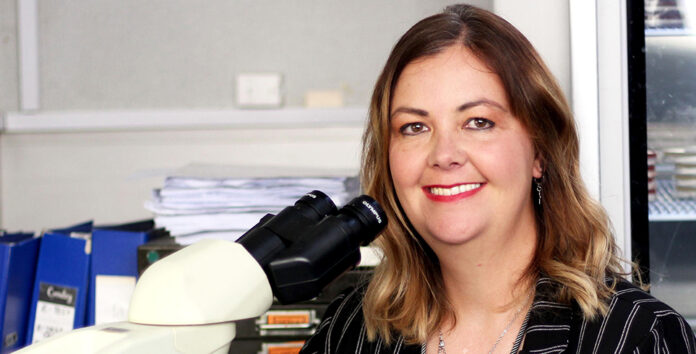A University of the Free State (UFS) staffer who was first to discover the S. oblongispora mucormycosis in sub-Saharan Africa hopes this won’t be her last discovery.
Bonita van der Westhuizen, a senior lecturer and pathologist in the UFS department of medical microbiology, explained her discovery in words published in the Journal of Case Reports in Pathology last month to make other medical professionals aware of the seriousness of this hitherto unknown fungus.
“Mucorales fungi are known for their fast growth and ability to invade blood vessels.
“This allows the infection to spread quickly through the body, potentially reaching vital organs,” she said, adding that these fungi can resist being killed by immune cells, allowing them to establish infection.
Worse still, some mucorales fungi can produce toxins that disrupt blood vessels, further aiding the spread of infection.
Additionally, certain host conditions weaken the body’s defences, allowing the infection to spread quickly.
This is a group of fungi that normally infects patients with underlying risk factors such as diabetes mellitus, malignancies, transplant recipients, and current or past Covid-19 infection and immunocompetent patients after traumatic inoculation.
But even this data comes from research done in tropical regions, so nobody quite knows how this organism actually behaves in the local patient population.
Unfortunately, the patient died, but Van der Merwe said a combination of surgery and antifungal therapy usually does the trick.
“The challenge is rapid recognition or suspicion of this infection to start therapy immediately because infection can rapidly progress to mortality,” she said.
It was the case in this instance too.
She said this patient received neither antifungal therapy nor surgical interventions, so the cause of death was only identified afterwards.
“This is unfortunately the case with mould infections, as most readily available diagnostic methods lack sensitivity, and these pathogens take long to grow in the laboratory.
“Fungal diagnostics is a specialised field that requires expertise. However, if clinicians are aware of these infections and they have an increased index of suspicion, appropriate therapy can be initiated even before the results are available.
“If clinicians suspect this type of infection early and they involve the infectious diseases physicians, microbiology and histopathology for support and advice, they will be guided to collect the most appropriate samples to ensure that an accurate diagnosis is made.”
She said she hoped to further research this fungal species for her PhD, their epidemiology, diagnostics, and their impact on vulnerable populations.
“The more we do research, the more we will understand our own local epidemiology and ultimately improve service delivery to our community,” she said, adding she was working even harder to make sure this first is not her last.



